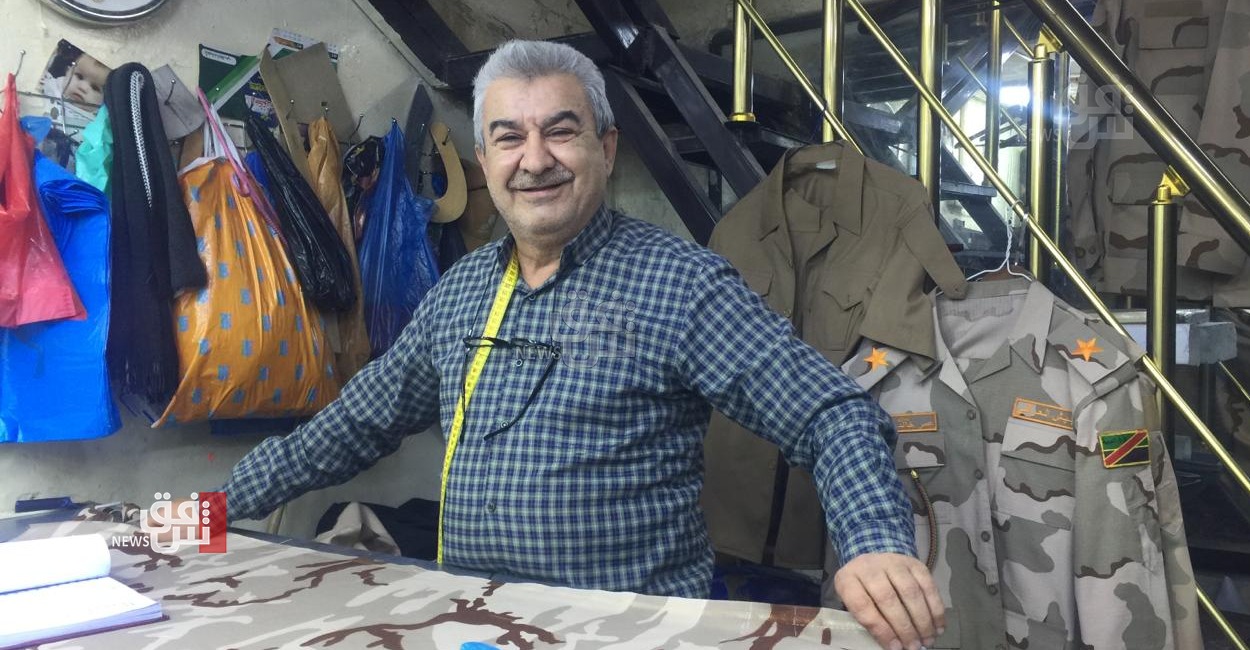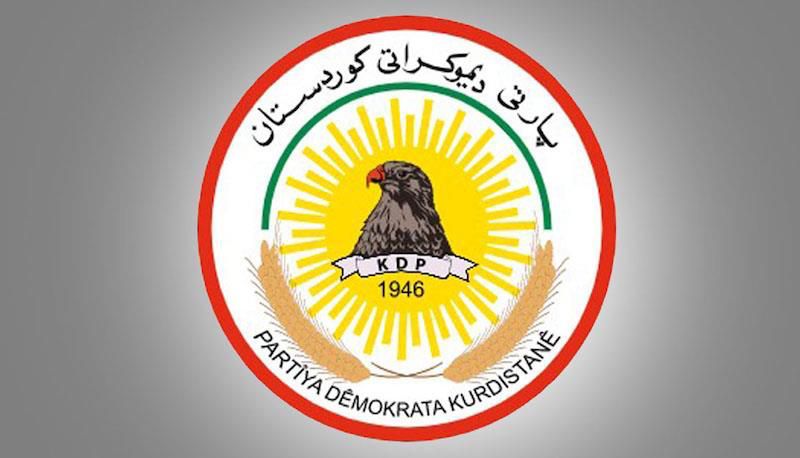Shafaq News inside Kirkuk's time-honored military tailoring market

Shafaq News/ When entering Kirkuk's military attire market on Al-Mahakim Street, various military officials including lieutenants, major generals, police officers, and others can be seen roaming the area in search of the best tailors.
Abbas Zainal Abu Fadel, 75, the second oldest tailor in Kirkuk Governorate, tells Shafaq News Agency, "The profession ?f tailoring ?s one ?f the oldest historical professions ?n Kirkuk, deeply rooted in Kirkuk's ancient history. I have been practicing tailoring since 1970, when I started at the age ?f eight. I learned the profession involving scissors, measurements, and the position ?f tailoring that transforms fabric into military suits."
Tailor Abu Fadel notes, "I stitched military attires for senior Iraqi army officers with ranks starting from major general (the highest in the Iraqi army) and downwards. Officers' clothing follows modern models arranged according t? their military branch. For instance, the color ?f the uniform differs between ground forces and counter-terrorism units. Similarly, the Federal Police have a distinct color and uniform model compared to other security agencies. The same applies t? local police forces, characterized by various branches."
"Fatah Pasha ?n Nasiriyah was the best, and Iranian cloth dominated the fabric market"
Abu Fadel recalls the Iraqi fabrics manufactured ?n Iraqi factories as of high quality, especially ?n the 1970s.
“We used t? choose Fatah Pasha fabric, manufactured ?n the Nasiriyah Fabric Factory. This type was used by the Iraqi army for several years, including during the Iraq-Iran war. Prior t? that, olive-colored fabric was used by members ?f the Republican Guard ?n the former Iraqi army and those affiliated with the dissolved Ba'ath Party."
He adds, "Iraqi fabric has vanished from the market, and Iranian fabric dominates now. Its prices differ from those imported from European countries, especially English and Italian fabrics. However, European fabrics are scarce ?n the market due t? the high cost incurred by merchants, thus affecting tailors."
"The cost ?f one suit ranges from 70,000 t? 120,000 Iraqi dinars." He said.
Regarding military uniform prices, Abu Fadel points out, "The price ?f one military suit ranges from 70,000 t? 120,000 Iraqi dinars (53 t? 92 dollar). The price ?f the rank badge within the suit ranges from 5,000 t? 120,000 Iraqi dinars (4 t? 92 dollar). If someone wants different models ?r additional features, the price may reach 175,000 Iraqi dinars (134 dollar) due t? additional ornaments ?n the military suit. Thus, there ?s a price difference between one town and another."
Mohammed Jamal, a fabric seller ?n Kirkuk's main market, explains, "Fabrics circulating ?n the Iraqi market come ?n three types: European, Iranian, and Turkish. Turkish and Iranian fabrics dominate the market, with the latter being the most widespread. Prices start from $200 and reach up t? $500 for every 50 meters."
He continues, "Imports come from China, Turkiye, Iran, and Europe. Fabric merchants are divided according t? the popular fabric types. Military fabrics have seen increased demand ?n recent years, and we import and distribute them t? merchants across Iraq."
Iraqi Army member Amar al-Jubouri tells that, "The military uniform reflects the elegance ?f Iraqi officers and soldiers. Iraqi military personnel are known for their uniform aesthetics, including the type and rank insignia, as military discipline and appearance represent a military institution."
He adds, "Since the establishment ?f the Iraqi Army ?n 1921, Iraqi officers and personnel have been known for their attention t? military clothing and its aesthetics, which are an important and complementary part ?f the Iraqi officer and soldier's personality."


